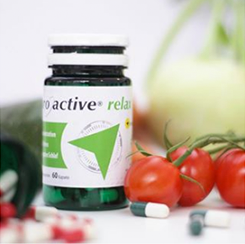Magnesium Deficiency: What You Should Know?
1. Sufficient Intake Of Magnesium
Magnesium plays an important role in many biochemical reactions, affecting blood pressure, metabolism, immune function, and many other activities in the body.
Here are the benefits of adequate magnesium intake:
-
Helps reduce tiredness and fatigue.
-
Supports normal bone function and energy metabolism.
-
Promotes the digestion of fats, proteins and carbohydrates.
-
Helps to relax the body, reduce stress and create a good night's sleep.
-
Contributes to the normal cardiovascular system.
2. Magnesium Deficiency Can Occur In
-
Sugar addiction
-
Frequent drinking of soda
-
Frequent consumption of canned and heavily modified foods
-
Diabetes
-
Infrequent consumption of vegetables and foods high in magnesium
3. Magnesium Deficiency Symptoms
Magnesium deficiency symptoms are usually undetectable until levels are really low. At this point, fatigue, muscle cramps, mental disorders, irregular heartbeat, high blood pressure, asthma, and osteoporosis (brittle bones) can occur. The mental disorder that researchers have linked to magnesium deficiency consists primarily of apathy and lack of emotion, although confusion and delirium sometimes occur.
Studies suggest a link between an irregular Heartbeat and another condition associated with magnesium deficiency - an imbalance in potassium levels inside and outside the heart muscle cells.
A magnesium deficiency can also increase the risk of osteoporosis and broken bones, although scientists have found that many factors can play a role in these problems.
Research has shown two links between magnesium deficiency and asthma. One of them claims that people with severe asthma are more likely to suffer from magnesium deficiency. The second study shows lower levels of magnesium among all people with asthma relative to the general population.
If you think you may be magnesium deficient, contact your doctor. A simple blood test can tell you for sure.
4. How do you supply your body with magnesium?
First, consider whether you should change your diet. You can find magnesium in squash, spinach, artichokes, soybeans, kidney beans, black beans, and large northern beans, in Brazil nuts, almonds, cashews, and peanuts, in tofu, brown rice, and bran.
These foods are also rich in other nutrients that are good for your health. This means that including them in your diet not only lowers the risk of magnesium deficiency, but also boosts your overall well-being.
In addition to changing your diet, you can optimize your magnesium levels by taking a dietary supplement. This is a top choice Viproactive® MagB6 from Schaeffer Nutraceuticals. It not only contains magnesium, but also other nutrients such as zinc, calcium, vitamin B6 and D, which together with Vitaprotein help you to get to the bottom of the magnesium deficiency.
- Choosing a selection results in a full page refresh.
- Press the space key then arrow keys to make a selection.











